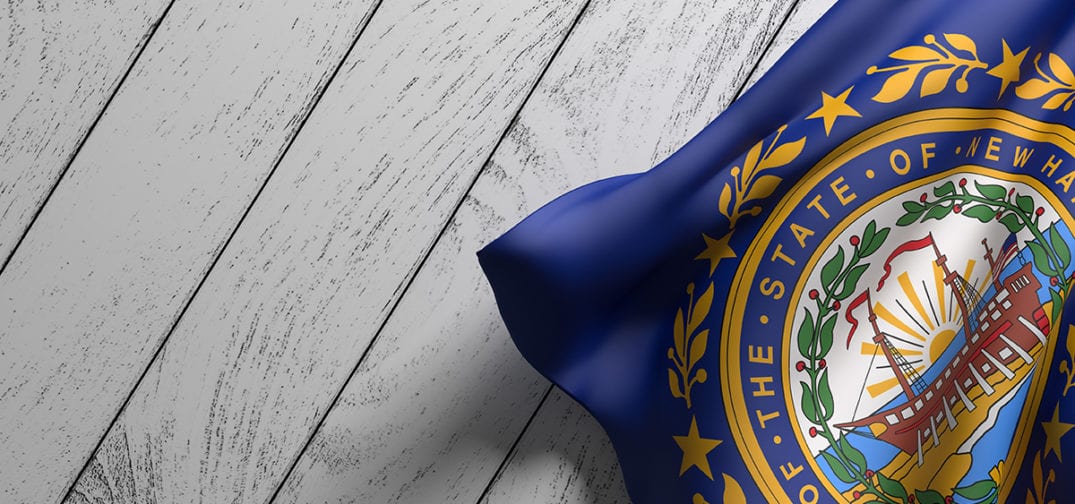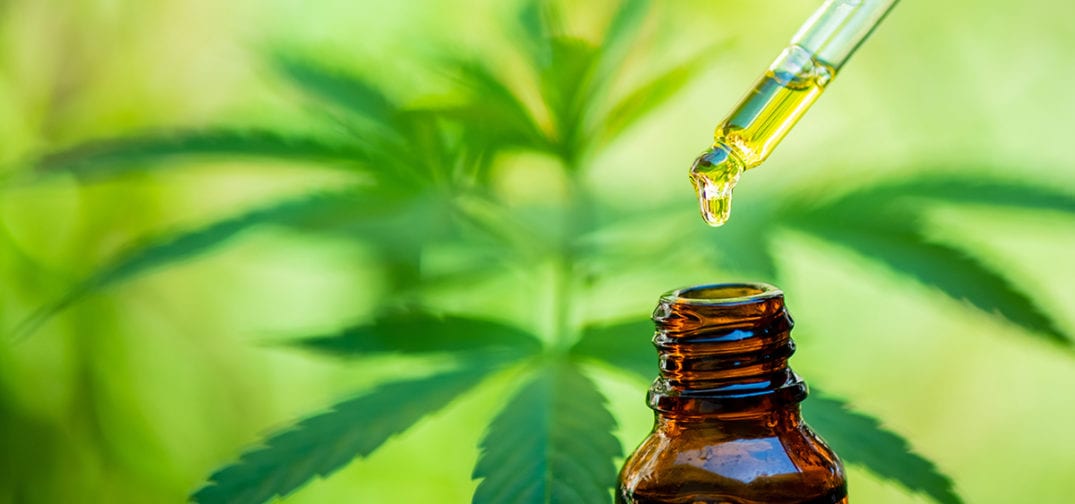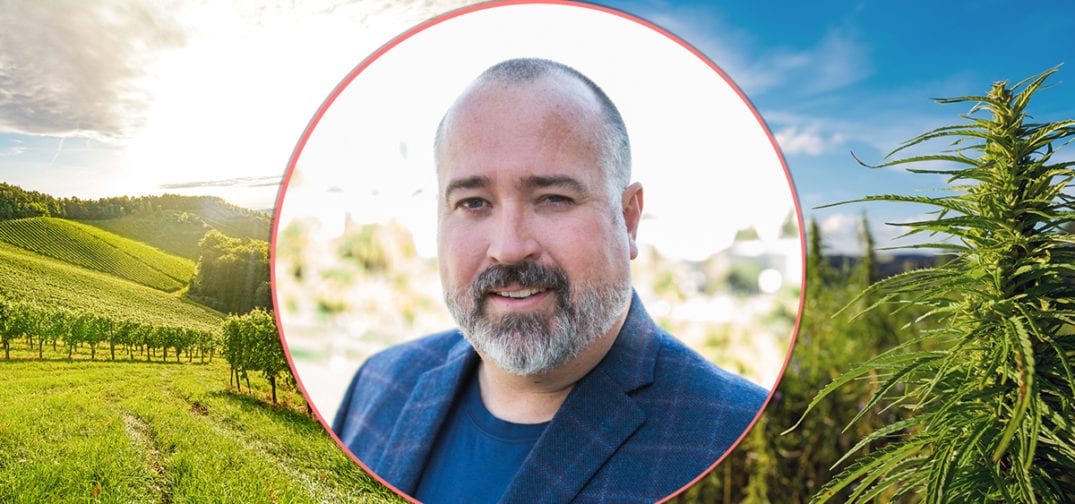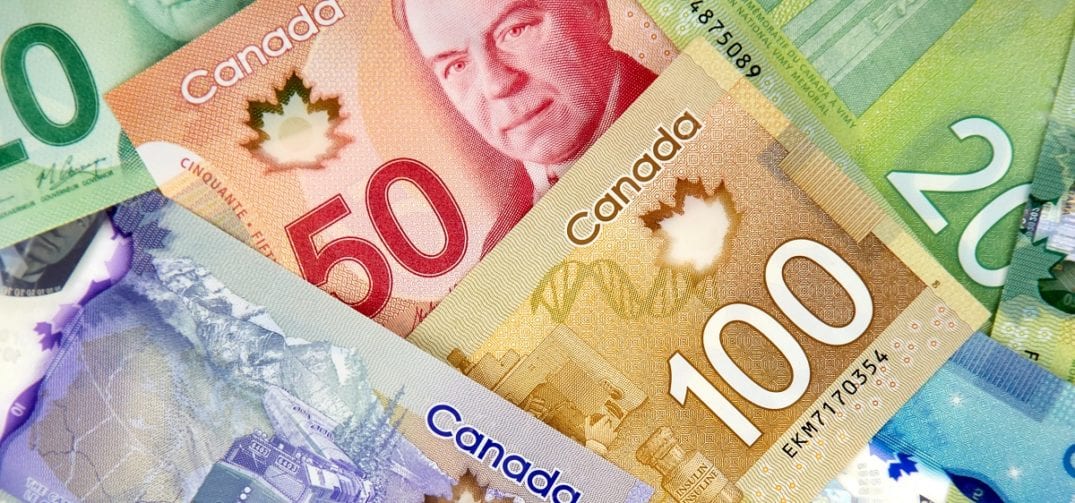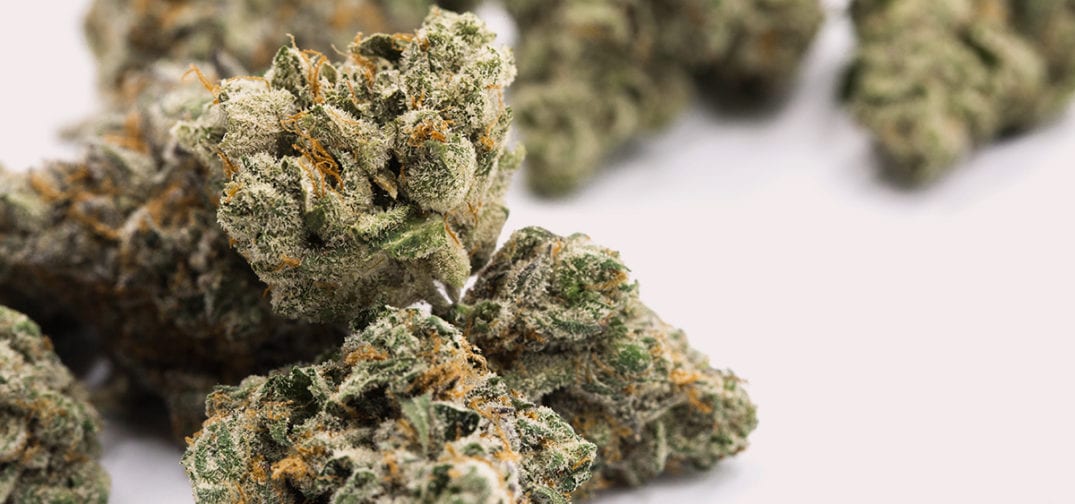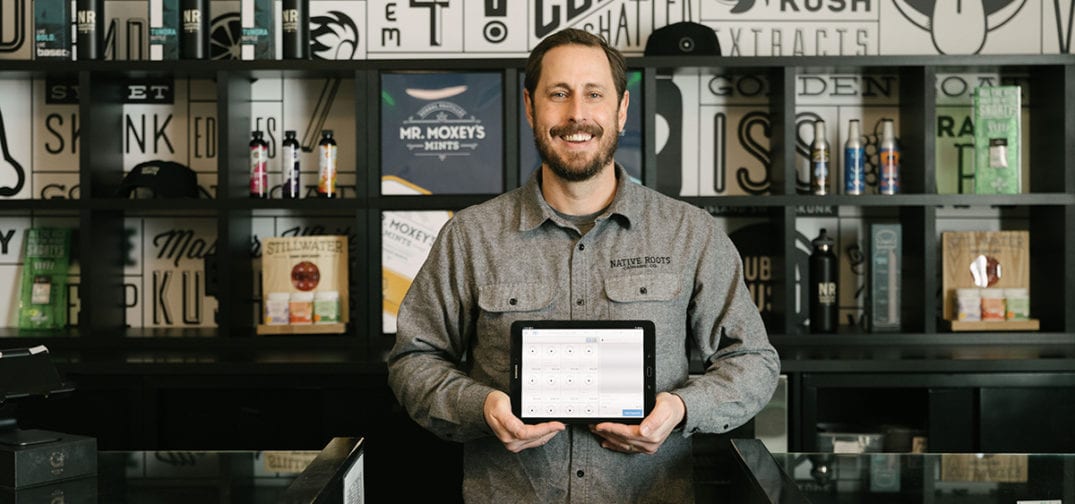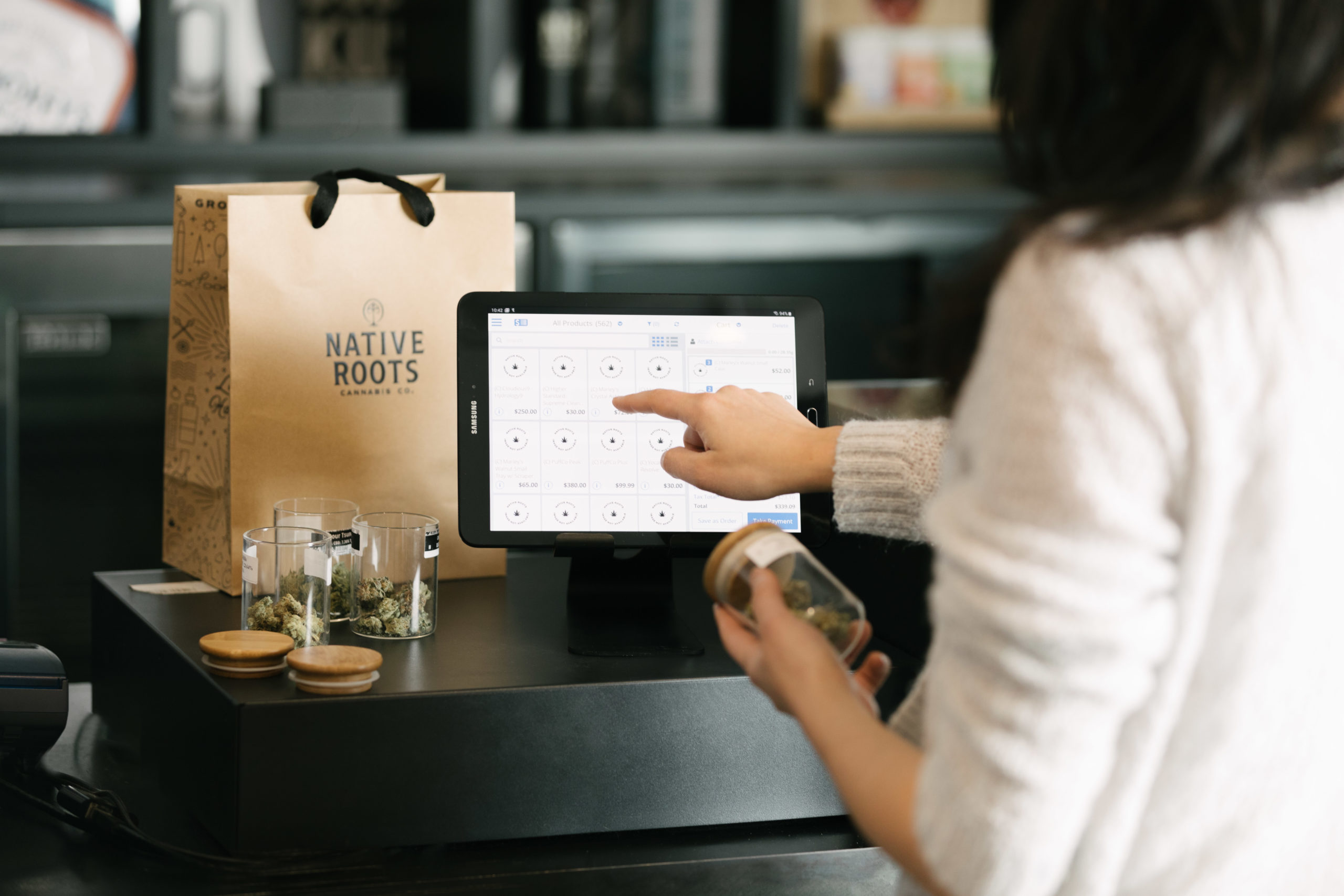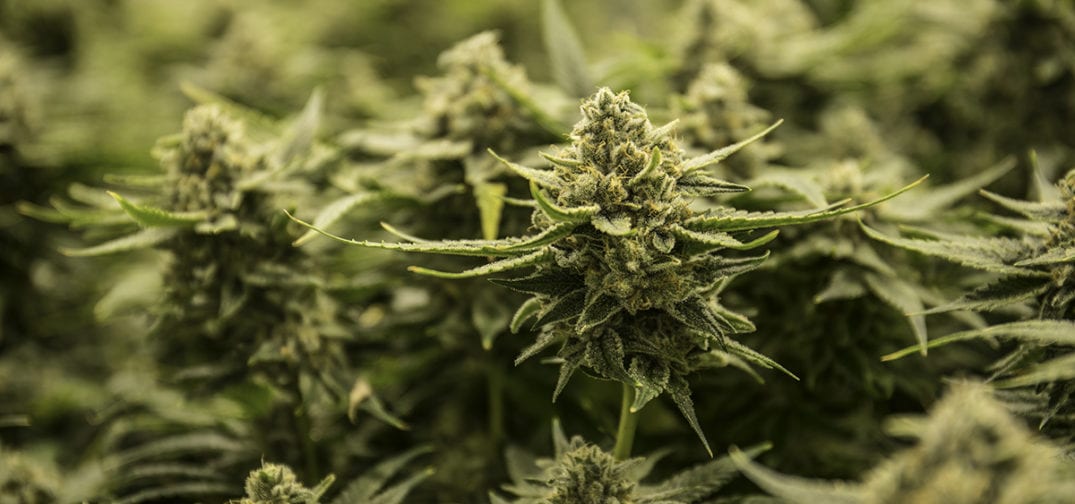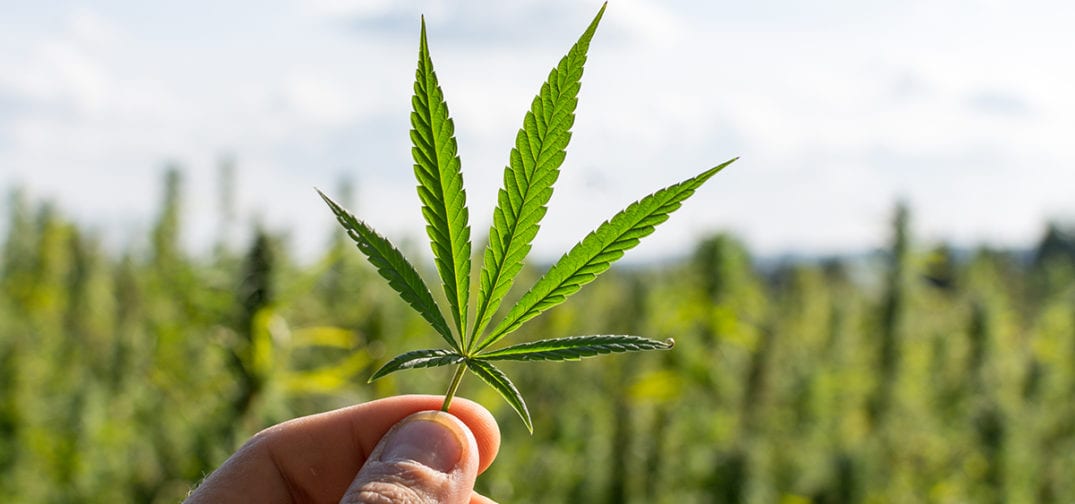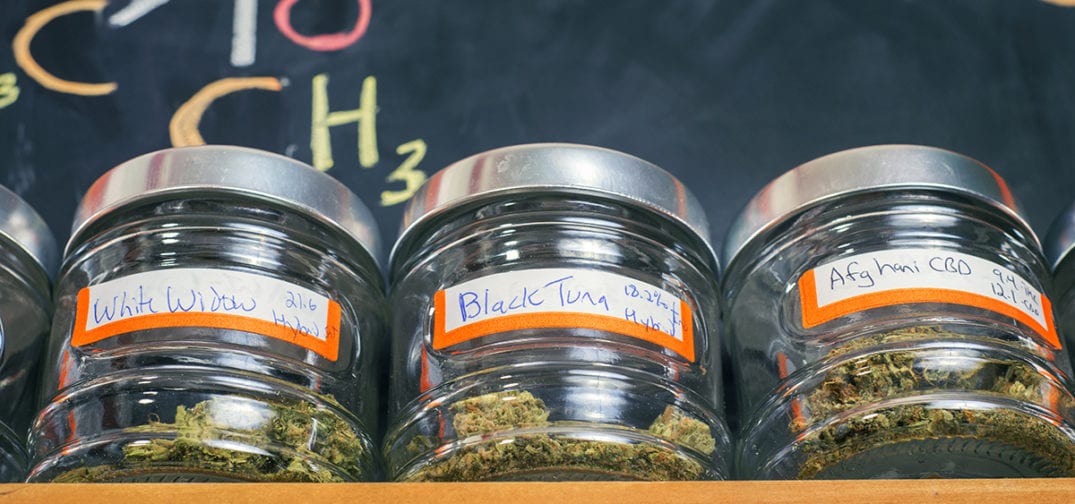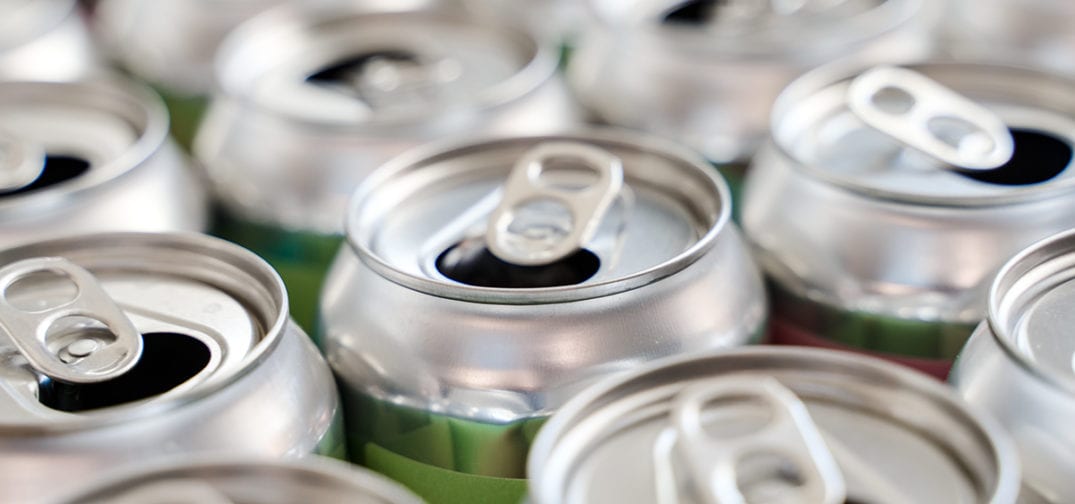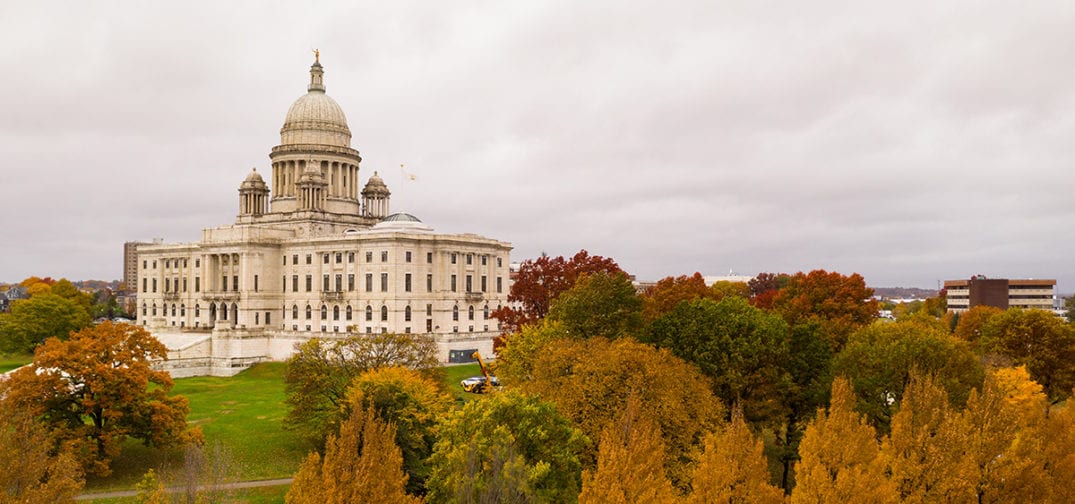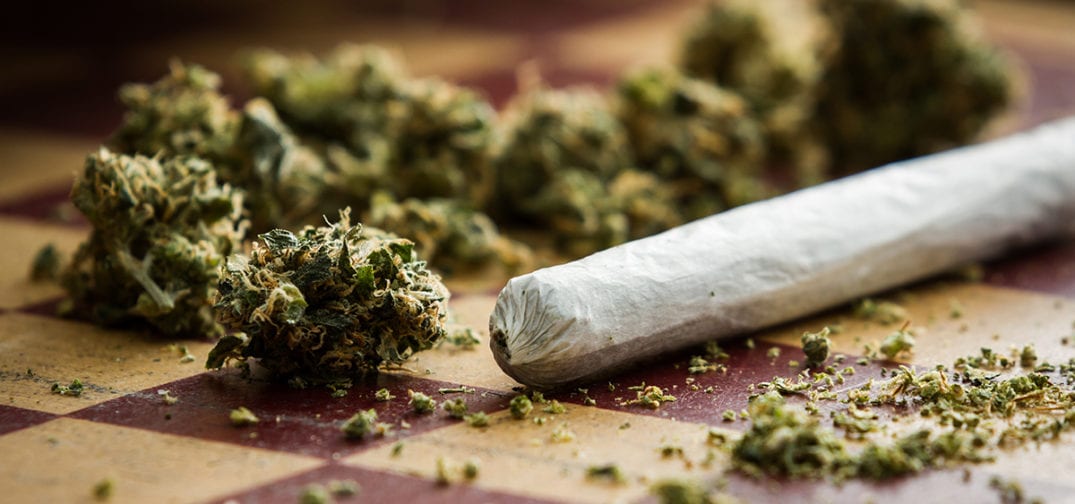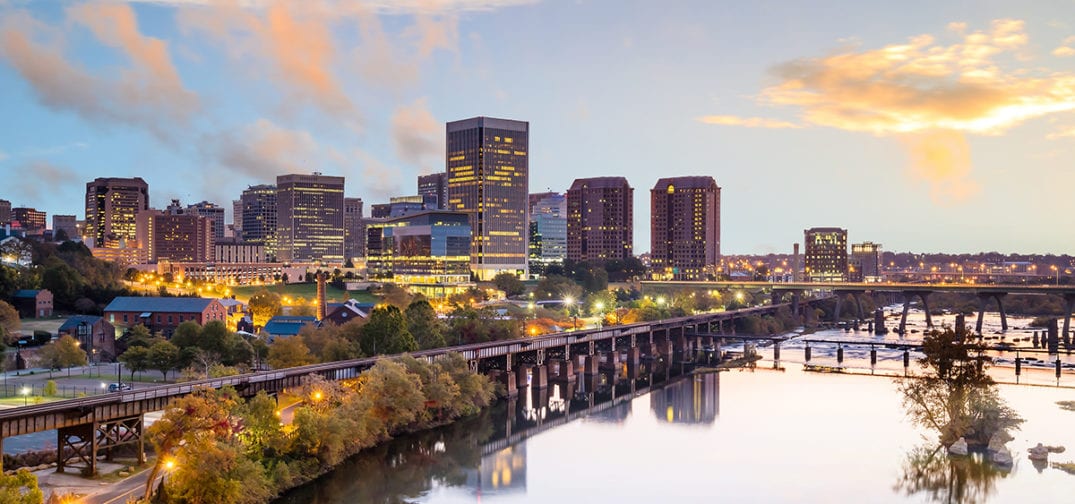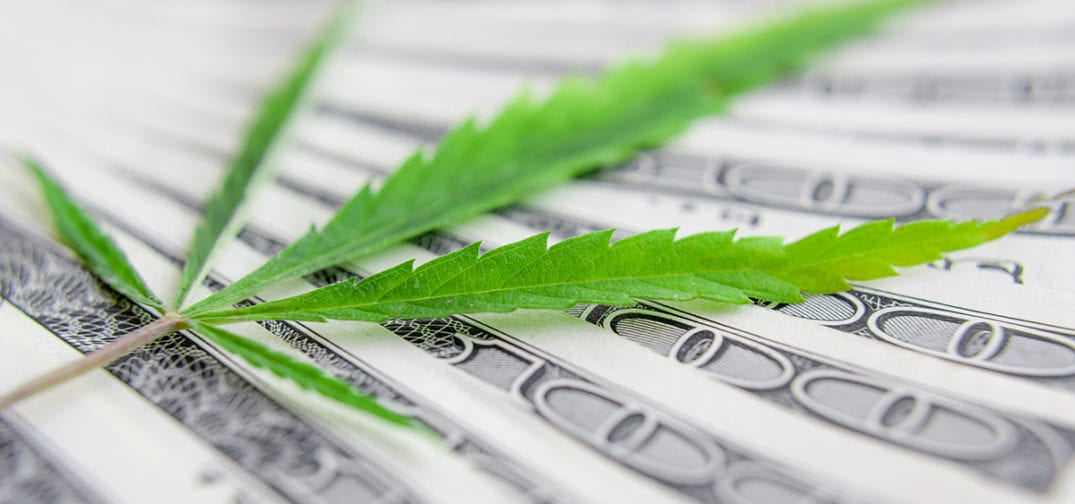As the founder of Enlighten Hospitality Solutions and the California Cannabis Tourism Association, Brian recently returned to our podcast for his second appearance on the show to provide updates on the California cannabis tourism scene, including recent legislative attempts to boost cannabis tourism, the pro-cannabis attitude of many tourists, and more!
You can tune in to this week’s episode of the Ganjapreneur.com Podcast via the player below, or scroll down to read a full transcript of the interview.
Listen to the podcast:
Read the transcript:
Commercial: This episode of The Ganjapreneur Podcast is made possible by 420 friendly service providers in the Ganjapreneur business directory. If you need professional help with your business from accounting to legal services to consulting, marketing, payment processing, or insurance, visit ganjapreneur.com/businesses to find service providers who specialize in helping cannabis entrepreneurs like you. Visit the Ganjapreneur business directory today at ganjapreneur.com/businesses.
TG Branfalt: Hey there, I’m your host TG Branfalt and thank you for listening to the Ganjapreneur.com podcast where we try to bring you actionable information and normalize cannabis through the stories of ganjapreneurs, activists, and industry stakeholders. Today I’m joined by Brian Applegarth. He’s the CEO co-founder of Emerald Country Tours, founder of the Cannabis Trail, founder of the California Cannabis Tourism Association. It’s the second time that I’ve had him on the show, so I guess he’s a friend of the show now. He’s led the advancement of cannabis tourism in California, working with brands representing the industry and culture to bring their niche offerings to the mainstream via tourism. He’s an advisor for hospitality-based businesses interested in incorporating cannabis into their model. How are you doing buddy?
Brian Applegarth: Hey, TG. I’m great, man. How have you been?
TG Branfalt: You know, it’s getting colder, it’s getting colder. We’re getting a little closer to legalization in New York. Things are both looking up and a little chilly. You were telling me, we’re chatting to begin with, you’re headed to do a conference, huh?
Brian Applegarth: Yeah, man. Headed to SoCal this week, Southern California for a couple of meetings and then an event which is happening in Long Beach, it’s called The State of Cannabis. It’s a really cool event. It’s really unique actually. Its regulators, its assembly members, its government officials as well as stakeholders and leaders in the cannabis industry all in one room sitting on panels and sharing information. It’s a really important event. Yeah, pretty excited about heading down there.
TG Branfalt: It’s the first time you’ve attended something like this with both regulators and stakeholders?
Brian Applegarth: You know, I was there last year and of course with the association, I lobby and I’m present in Sacramento a couple times a year to be part of the tourism conversation there at the state level. Yeah, it comes in and out as far as my work in that space.
TG Branfalt: Cool, man. I mean, we’re definitely going to talk about that, your firsthand knowledge and some of the stuff that I’m looking to clarify here. Before we get into all of that, man, remind us, as I said, you’ve been on this show before, so some people were probably familiar with your name but might not fully remember what you’re all about. Remind us how you got into the cannabis space.
Brian Applegarth: Yeah, it was approximately five years ago at this point where I moved back to Northern California where I grew up, and I was working in a real estate corporate job. I learned pretty quickly that cannabis had come a long way since I graduated high school in ’98. I was gone for quite a bit of time. When I got back to California, I saw this burgeoning gray market industry and legalization seem pretty obvious that it was coming. I’ve just always been a lover of travel and tourism and hospitality and culture and also a fan of cannabis because growing up in Northern California, that’s just part of our culture here. I went to Oaksterdam University and started making trips up to Mendo and Humboldt. Just really fell in love even deeper with the culture and the story of cannabis in California.
Then I started thinking about what my next move was for my career and my trajectory and quality of life. Cannabis tourism really spoke to me. It’s been its own journey. I jumped in initially with Emerald Country Tours as you mentioned. That was the first of many projects now that I’ve had a hand in and it’s been a pretty wild ride and a really exciting one at that. Where we are today is incredibly exciting because cannabis tourism is at an inflection point and becoming really, really relevant as California goes into its third year of adult use legalization.
TG Branfalt: I mean, there was a lot of stuff in the works. They’d just legalized in California. How’s your business, the tourism industry changed since we last spoke two years ago in California?
Brian Applegarth: Yeah, good question. I say the first two years of legalization, a lot of it has been being an evangelist. Organizing the association, which is essentially a startup. Getting memberships on board, building the actual a board out, the board members. Getting the website. Getting the association up and operational and bridge-building with CalTravel and Visit California and some of the traditional travel tourism hospitality industry stakeholders for California. Now as we wrap up the second year, I think it’s going from an education evangelist role to needing hard data. The traditional industry that’s already established in California as one of the leading tourism regions of the world sees the impact and the opportunity of cannabis tourism and what that means going forward. At this point, at this juncture, everybody collectively recognizes that this is extremely relevant and that there is a cannabis tourist that’s demanding this as part of the California experience.
It’s really disrupting, not in a negative way, but it’s disrupting and it’s providing opportunity for the entire intersection of hospitality, travel, tourism, and cannabis and hemp and CBD. It’s a pretty big conversation. As we go into year three, I think we’re going to see a lot more data come out, which is going to support the traditional industry to be able to formalize strategy and figure out how to talk about cannabis and couch it as a destination product for California.
TG Branfalt: I mean, you’re seeing that in a lot of different states. Just here in New York, I was driving, I was headed to Massachusetts and as I went through Albany, I saw the billboard for the dispensary that was 45 minutes away. The one that I was actually headed to and I’m like, this has got to be great for Lee, Massachusetts. Right? People are driving through and it’s like 45 minutes to a dispensary. How often are people really taking that into consideration with their travel plans?
Brian Applegarth: Yeah, well it’s often, to be honest with you. I mean, cannabis has been in California. It’s been part of our culture. I mean, living in San Francisco, the Haight-Ashbury in general is essentially tied to cannabis tourism with the whole history of the hippies here and things like that. It goes above and beyond retail and consumption. It really gets into the culture and the history of the Northern California region. That’s where I find a lot of interest and my passion really lives is helping make sense of the ecosystem that’s developing. From consumption lounges, to infused dinners, to retailers, to tour companies. Also, making sure that the culture and the historical storytelling of the movement is part of that tourist experience because I think we all know that in today’s world for marketing, that storytelling component and being authentic in that voice is really important. Northern California has got a lot of special assets in that way.
TG Branfalt: How have local and state policies changed as it relates to tourism over these last three years?
Brian Applegarth: Well, as far as legislatively, we had one senate bill that came up. It was 625, and it was essentially about the party bus and the ventilation and being able to smoke. It really spoke to tour companies and what was legal and not legal. Unfortunately, that one did not get through this year, which was a loss for sure. That’s going to be something that we’re going to have to circle back with. That being said, we use these opportunities to educate about how cannabis has a lot of ways that it can be consumed now that go above and beyond inhalation. Of course, you have vape pens and smoking joints and all that, but you also have drinkables, microdosing, edibles. I mean, heck, even the leaf, the fan leaves of the plant are incredibly medicinal, and that’s something that you could put in a meal or make pesto from.
Then when you start talking about Hippie Hill and some of the iconic locations of the cannabis movement, there’s a lot of ways we can start talking about it. SB 625 unfortunately didn’t get through. That being said, the tourists and visitors to our state are showing up and asking questions. Some of the dispensaries and consumption lounges in the Bay Area are reporting that up to 70% of their daily transactions are tourists that are coming in.
TG Branfalt: Unreal.
Brian Applegarth: Yeah, absolutely. When you consider the millions of tourists that visit L.A., San Francisco, Palm Springs, Santa Cruz, it gets to be a bigger and bigger conversation that needs more and more attention. Then of course, okay, so the CDFA in California is currently developing the cannabis Appalachians of the state and they plan on activating that and announcing that in 2021. Once that rolls out, there’s going to be this infrastructure in place that’s really going to support a new narrative that’s going to have protections for local regions of origin so you can have this brand authenticity and start crafting regional narratives about microclimates and terroir and what cultivars or varietals of cannabis grow in what regions. That’s going to be another inflection point once that happens in 2021. For now, going into our third year, I think it’s going to be a year of data. It’s going to be a year of the traditional industry tipping in. You’re going to see destinations start to formalize what is their unique message with cannabis, hemp, and CBD to draw visitors and make it part of that experience-
TG Branfalt: Well, you said that the tourists are coming in and they’re asking questions. What kind of questions? What are people looking for in terms of cannabis tourism?
Brian Applegarth: The tourist profiles we’re seeing, not surprisingly is a pretty wide net. It’s everything from investors that are coming to study the industry so they can prepare for their home markets as they embrace cannabis and have a competitive advantage. You have of course the high school reunion bachelorette parties that want to come in and have a cannabis experience in addition to the wine tasting.
TG Branfalt: That sounds like fun.
Brian Applegarth: Yeah, man, of course. Of course. Yeah, there’s consumption lounge crawls for people that want to go on a three or four consumption lounge hopper in San Francisco or Oakland. There’s tours of manufacturing plants, extraction. Tourists are really asking for, it’s everything from where do I get it to where can I use it. What I advocate for the hotels and concierge in the hospitality industry in general is there’s a few basic questions we need to be able to answer, and that is what’s legal, where can you legally buy it, and where can you legally consume it. That’s a great starting place for any hotel, any hospitality professional to be able to answer.
TG Branfalt: How open are they to doing that? How open are the hotels? Are any of them open to like, yeah, let them vape inside the rooms but obviously no smoking because, I mean, there’s smoking laws in general.
Brian Applegarth: Yeah. I think the conversations move past like how do they feel about it or how open they are. I think that that is informed by leadership. Certain people, depending on whether it’s a hotel that’s more traditional or one that’s more cutting edge and innovative, the leadership of the hotel largely informs what they’re embracing and what they’re not. What’s happening at the end of the second year of adult use legalization here in California is you have tourists showing up demanding it, and there’s issues that are arising that hotels need to deal with. For example, the number of guests that are overdosing on edibles and spending two days in the hotel room under the sheets has gone up. There’s been ambulances called for people who think they’re dying because they overdosed on an edible. There’s smoking in the rooms and vaping in the rooms on non-smoking properties.
There’s also the staff, right? There’s a lot of just the operations of a hotel. It’s like, what do you do when you do have an over altered guest? What is your plan? How do you feel that? How do you troubleshoot that? Also, in the second year of legalization, there’s still a very rampant black market. What a lot of the traditional industry doesn’t realize necessarily is that when you pull up a cannabis delivery in California on the internet and Googled it, it’s quite likely that you’re going to be ordering from a black market operator because they’re hard to tell the difference from. That is illicit illegal activity. It’s a cash transaction. Some of those products don’t go through the testing tier that is one of the biggest benefits of the regulated market is knowing that you have clean medicine and clean products.
At the end of the day, it comes down to the hotel leadership. Is it important for you to mitigate risk? Is it important for you to make sure that your customers are partaking in legal above board activity and transactions and providing the framework for supporting the regulated industry and making sure the safety of your guests? Whether it’s your hotel or amusement park or on your tour company, whatever it is. We really want to support safe and sustainable practices for cannabis tourism so the industry can really thrive. Right now it’s all comes down to communication and education at the B2B level and the B2C level both. That’s one of the pillars of the California Cannabis Tourism Association is really being a trusted source for the best operators in California that are creating this really new and exciting cannabis tourism space.
TG Branfalt: You had mentioned the consumption spaces in a couple of cities. I don’t think that that’s something like a lot of people outside of California really know. It comes as a surprise to me. How many consumption lounges are there? Where are they?
Brian Applegarth: Yeah, in San Francisco we have about 15. You got a couple up in Mendocino. You got I think 10 that have been approved for Humboldt. You got West Hollywood that just opened the first cannabis cafe, which is actually like a dining experience as well as cannabis. It’s like a hostess in the menu.
TG Branfalt: I want to ask you about that. What is that opening of that cafe? Tell us about the future of recreational cannabis in California.
Brian Applegarth: I think it’s one of many iterations we’re going to see as far as how cannabis evolves in an experiential way for customers to consume. I predict that the retailer was the first step and then you had the consumption lounge that was in a lot of respects, it was just bolted onto the dispensary. You have a couple dispensaries that actually made it more of an experience where you get seated and they have dab bars and things like that. Then you have this evolution of the cannabis cafe. I’ve also been to events and gatherings in Northern California where they have multi-course meals with cannabis sommeliers talking about-
TG Branfalt: Aren’t those private normally now?
Brian Applegarth: Those are private, yeah, but that’s like a ticket where you buy it but it’s a private gathering ages 21 and up at a private space. It’s not a public facing restaurant perse but it’s yet another experience. Just like we have Puff and Paint where you instead of sipping wine and painting a picture, you smoke a joint, paint a picture, or drink a cannabis drinkable and paint a picture. I mean, especially with how creative and flexible and incredible cannabis is with its effects, I think we’re going to really see a lot of art and music and innovation.
TG Branfalt: Somebody needs a smoking movie theater right now.
Brian Applegarth: Yeah, man. I mean, that’s part of it too. That’s one of the exciting things about cannabis is unlike wine and beer where a lot of the conversation is around mouth-feel and hops and tannins and legs on the glass of wine, cannabis is really effect-driven. I have this theory that cannabis, the way it’s going to be paired in the future in the tourist experience is going to be by effect. What activity or experience are you going to be doing that day, and what cultivar or varietal of cannabis, at what dose, is going to optimally enhance that experience or make it even more extraordinary by having cannabis be a tool to heighten your senses to complement that experience.
TG Branfalt: I want to switch gears. Earlier, you’re talking about the downsides to what businesses worry about when it comes to allowing consumption. We’re talking about hotels and that sort of thing. When they come to you to help guide maybe their plans or whatever, what questions are they asking?
Brian Applegarth: Man, I mean, it’s basic, right? It’s the beginning. A lot of it is cannabis 101. Obviously, they want to know what’s legal, right? Which I always disclose, I’m not a lawyer, but as I understand it, this is where we’re in in legal law within California. Then we really get into just cannabis 101. That’s where it starts for me with leadership. I talk about what is cannabis now? What’s cannabis 2.0? It’s got tinctures, drinkables, edibles, topicals, transdermal patches. You have CBD drinkables, which is equivalent to a non alcoholic beer. Then you have the super strong ones. Then you have everything in between. Right? It’s choose your own adventure now. When you double down on that with all the different methods of ingestion that are at your fingertips, it’s really reframing the conversation and overcoming that stigma through education and factual education, fact-based education.
I even go into the endocannabinoid system and I talk about the discovery of that, and what a endocannabinoid is versus a phytocannabinoid and how cannabis promotes health and wellness. Then we dive into what is your specific hotel property like? What is your threshold? We can do everything from educating your staff to integrating activities at concierge, to CBD products in lobby shop or in room, to cannabis delivery as a service amenity for your guests. There’s a lot of options on how to make this a really compelling product and tourism and also mitigate risk and drive incremental revenue. It’s a big opportunity. It’s not going away. I often talk about cannabis with the clients I work with. Hemp as far as sustainability, CBD as far as health and wellness, and then of course the higher THC products are really three different buckets that you really have to explore. Then you create a plan for what they’re interested in implementing. Oftentimes, it’s not all the above. I have some people that just want education and to have some activity as a concierge and that’s it.
TG Branfalt: What kind of activities?
Brian Applegarth: Cannabis tours, cannabis experiences. There’s a hotel here in San Francisco named Hotel Zeppelin that’s a really cool cutting edge hotel near Union Square that they have little poker chips at their concierge that gives you 10% off a consumption lounge. Now when guests ask about cannabis, they have some kind of compelling response that actually directs their guests to a really special experience in San Francisco that is legal, compliant and it’s in alignment with the hotel and the hotel guest profile. It could be as basic as that or it could be something more robust where when you check into the hotel, you have a little cannabis menu that actually lives in the room that features products that people can order.
TG Branfalt: That’s phenomenal.
Brian Applegarth: Yeah, it’s exciting.
TG Branfalt: I mean, the opening of that cannabis cafe, I mean, that caught national attention. Right? We wrote about it, there were news stories about it. It was a really big deal. What was the cannabis tourism’s response to the press that that got?
Brian Applegarth: It’s interesting you bring that up. This cannabis cafe and I got to tell you, West Hollywood, I believe they have 15 more lounges coming onboard in the next two years. Right. Yeah, it’s going to be, and they all are a little bit different. You have one that’s more of an edible cafe. It’s no smoking. You’re going to see them differentiate as far as what’s allowed when it comes to consumption and how they build their brand and experience around that. As far as how, you’re absolutely right, it caught national attention. Maybe even international attention because it’s the first cannabis cafe style establishment to open in the United States. It’s been sold out like every single day since it opened. We can call that an initial trend or hey, it’s shiny and new.
I think time will tell, but obviously this is a perfect example of a really powerful asset that’s drawing attention where the destination of West Hollywood is now, I mean it’s exciting. They have something new to talk about. Now understanding that and how to message around that is a little more complicated. Partially, that’s because of the marketing laws. You really can’t promote cannabis consumption. There’s these laws that are barriers and blocking business as usual and people are nervous to take certain steps. It all comes down to communication, figuring out a plan where everybody’s on board, and then maximizing the opportunity whether you’re a Lowell’s cafe in West Hollywood or whether you’re L.A. area or West Hollywood. Yeah, it’s exciting to see it. It got a lot of attention and we’re going to see a lot more of that in 2020.
TG Branfalt: I mean, you’re situated next to, I mean, basically the whole West coast is legalized. Does that have an overarching effect on tourism in California?
Brian Applegarth: Yeah. I mean, I think that if nothing else from an optics perspective, it really shows that there is this alignment for the acceptance of it on the West Coast. There’s strength in numbers, that’s just how the world works. As far as boosting the tourism draw as a West Coast experience, I don’t see that happening yet. I mean that being said, you mentioned earlier on the cannabis trail, which is my nonprofit, it’s a legacy cannabis historical trail that I’m going to be slowly building over the next 20 years. I’m definitely exploring of bringing that up into Oregon and maybe even continue to get North to Seattle where it becomes more of a track along the West Coast that takes you through all the different cannabis country legacy storytelling of the West Coast. Because there’s a lot, there’s a lot to it, and each one of them is unique.
TG Branfalt: Are you doing those tours now like in California?
Brian Applegarth: Yeah. I mean, Emerald Country Tours was interesting because that’s where I put a lot of my effort up front but then life had other plans. That still is in operation. I do a couple of tours a year. Actually really excited about next year. Next year I’m going to be doing basically one tour that’s going to happen in September and it’s going to be 11 days. It’s going to be an immersive, extremely immersive, one of a kind cannabis in depth experience from San Francisco to Oakland all the way up to Humboldt.
TG Branfalt: Put me on that list.
Brian Applegarth: Yeah, I’m excited, man. I just finished baking out the itinerary and I’m getting some feedback from some people. Then I’m going to release it into the wild. It’s going to be limited to 24 people and it’s going to be extremely specialized and immersive. It’s something that I’m excited about doing… Of course, I’m going to continue the relationships with my senior retirement communities that I’ve been servicing and taking on tours. That’s really where Emerald Country Tours kind of pivoted into was it became really obvious to me that the most important and the most rewarding tours that I operated in the first year, year and a half of business there was with the active adult retirement communities. I’m going to be doing those as well.
TG Branfalt: I mean, are you getting a lot of that population? We read some studies that suggest that the baby boomer generation is coming around a little bit when it comes to use when states legalize. Is that something that you experience out there?
Brian Applegarth: Yeah, I mean the baby boomers are like, they’re coming on real strong. That’s one of the highest demographics of growth and the trajectory is just speeding up because people are finding quality of life is improving and they’re really curious about cannabis. As stigma dies off, more and more of them are tipping in. They also have resources, a lot of them. When you look at dispensaries and the people that have the money to spend on it, the baby boomers are right in there. I love that whole demographic. It’s one of my favorites because you can really change minds once you educate them about the science behind the endocannabinoid system and you explain this whole new world. I enjoy watching somebody who is in their 60s or older have their eyes opened about how misled they were with cannabis and hemp over the last 80, 90 years.
TG Branfalt: How often does that happen for you? What percentage of people are sort of… I don’t want to call them novices but maybe don’t know as much but are getting their feet wet through these tours and these experiences.
Brian Applegarth: Man, that’s like my world. I found that my role in this whole story of cannabis and the movement that’s happening and the legalization and navigating that is I’m really an educator and a bridge-builder. I spend a lot of my time educating people that are new, whether it’s government, whether it’s the fire department, whether it’s hotels that have been in operation for over a hundred years. I constantly find myself as an educator that’s helping normalize and just make sense of this opportunity without being pushy about it and fully recognizing that not everybody smokes and wants vaping on their property, and that’s okay. I think the more people that are able to understand and use cannabis, the better the world will be. That’s my ethos. If that’s a drinkable or a microdosing edible or if that’s a CBD topical for somebody’s pain, all of those are wins in my book. I just stay in that lane. To answer your question, pretty much every day my work revolves around people that are newer to cannabis.
TG Branfalt: That’s what I appreciate about you. You’re going into this meeting with regulators, you’ve been talking to regulators, lawmakers for a few years now. What’s been the evolution there? What’s been your experience working with people who make the policies?
Brian Applegarth: It’s a big negotiation and the people that are doing the real heavy lifting are the ones that are embedded in the supply chain. Cultivation all the way to retail. When you look at distribution, manufacturing, the testing tier, and all the different benchmarks of getting a product to market, it’s going to be an ongoing negotiation for the foreseeable future because, well, there’s a couple of reasons. One is the stigma is not helping and a lot of people are still brainwashed about how cannabis was a drug and it’s like the devil’s lettuce and all this nonsense. Then you have obviously money and influence becoming primary values with a lot of people. I’m not talking about government here necessarily, I’m talking about the capitalistic, consumer-driven, regulated environment of California and the United States in general where when you get investors and it tips in as a white industry or an above board legal industry, the game board shifts, right?
It’s like you had the elicit, the underground market, then you had the gray market where it was medical, and now you have the aboveboard market. It’s like three different game boards. You got to really stay persistent in advocating for legislation that is favorable and that encourages sustainable, smart, and most importantly, safe for the public operations or landscape for the industry. There’s a lot of battles being fought and a lot of it comes down to tax dollars. It comes down to permits. You know, in Northern California you have this whole culture that’s been living off the grid that hasn’t been part of the matrix that most of the world lives in with licensing and computers and technology and cellphone signals and all the different things. You have these people that have all the brain thrust up in the Northern California in the Emerald triangle and there’s such a gap in what the skills are. There’s not one is better than the other like it’s just two different worlds.
Watching that unfold is like a case study in itself. That’s how I really see cannabis as like this cannabis being legalized in California, it is a case study on capitalism. It’s a case study on permitting and licensing. It’s a case study on local municipality versus state versus federal. It’s a clash of cultures and values. A lot of people think at this point it’s kind of good versus evil. There’s some negotiation happening on how that industry is going to shake out and who’s going to hold the influence and the power. It’s a lot of big ideas and big conversations that are going on. I think time will tell. I’m excited to be a part of it and to be able to advocate in my own way for what I think it could and should be for its highest purpose.
TG Branfalt: You mentioned the locality, I know that quite a few, a large number of California municipalities have banned cannabis operations within their city limits. How much of an impact has that had, if at all, on tourism? Is the tourism part of cannabis doing just fine in California without these swaths?
Brian Applegarth: Yeah, no, I mean, that’s good question. I think it depends on the municipality and the location that we’re talking about, the destination. There are certain destinations in California that are absolutely relevant when it comes to tourists and tourism. I mean at this point, anybody who’s not embracing tourism, I feel like they’re missing out on an opportunity to drive commerce and dollars into their market, which means tax money for the local government to be able to use to improve the community. I think over time it will roll out. I think that there’s going to be people that are leading, which there is, it’s Mendocino, Palm Springs, West Hollywood, San Francisco, Oakland, Santa Cruz are kind of the ones that are really leading the space. Sonoma County is getting there. I think once these leader markets have a bit more information and have gone out and really establish themselves and proven the model, you’ll see the next wave of destinations tip in.
I mean, the other point to this, TG, is that there’s a very vibrant black market still. Even though these municipalities think that they’re saying we’re not going to regulate cannabis, there’s probably the exact same activity that was happening before regulation is still happening on the black market and their municipality and that’s just a fact. At the end of the day it comes down to, do you want to be part of the future? If so, when? I’m not saying everybody should do it now. Every municipality has its own culture and I really respect local communities to make their own decisions and create coalitions to move forward together. What does that look like? I think that the conversation and the education are vital right now to continue the conversation moving forward and to be a resource for people.
TG Branfalt: I’d love to talk about this with you for another, keep this conversation moving forward for another hour or so. It’s always great to have you on, but we’re just about out of time. Where can people find out more about you and your various endeavors?
Brian Applegarth: Yeah. Great. Thanks for asking. My website is Brian with an I, Brian Applegarth, A-P-P-L-E-G-A-R-T-H, so that’s brianapplegarth.com. My email is ba@brianapplegarth.com. You can find me on LinkedIn and I’d love to connect and hear from anybody that has questions. It’d be great.
TG Branfalt: Well again, man, I really appreciate having you. Hopefully we don’t wait another two years. Hopefully the next time I see you, I’ll require your services as a tour guide. I think that’d be great. Again, thanks for coming on and just letting me explore that wealth of knowledge that you are, man. Appreciate it.
Brian Applegarth: Thanks TG. I always enjoy, dude. You’re welcome anytime in California. Come on out here.
TG Branfalt: You can find more episodes of the ganjapreneur.com podcast in the podcast section of ganjapreneur.com and in the Apple iTunes store. On the ganjapreneur.com website, you’ll find the latest cannabis news and cannabis jobs updated daily, along with transcripts of this podcast. You can also download the ganjapreneur.com app in iTunes and Google Play. This episode was engineered by Trim Media House. I’ve been your host, TG Branfalt.

